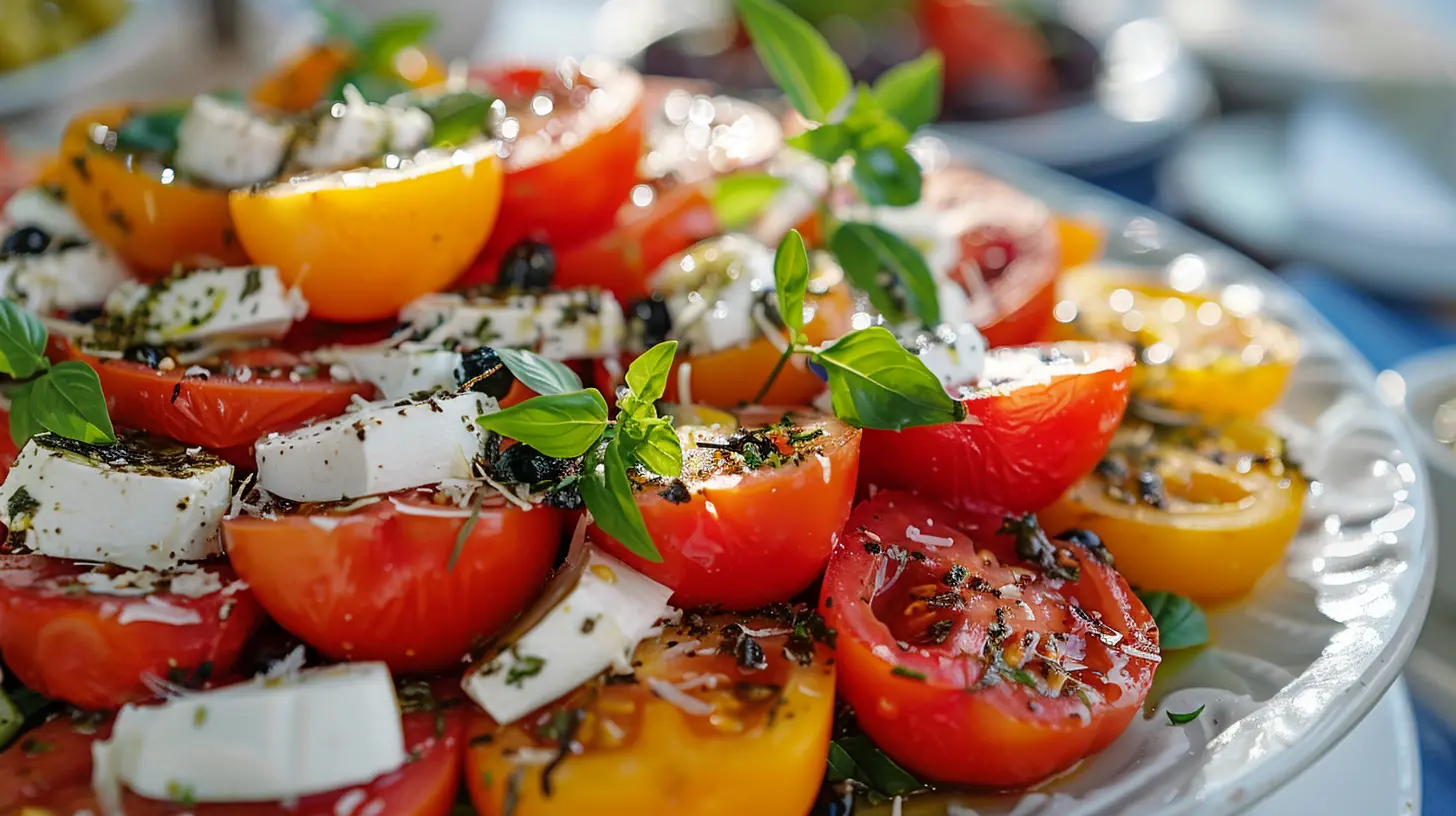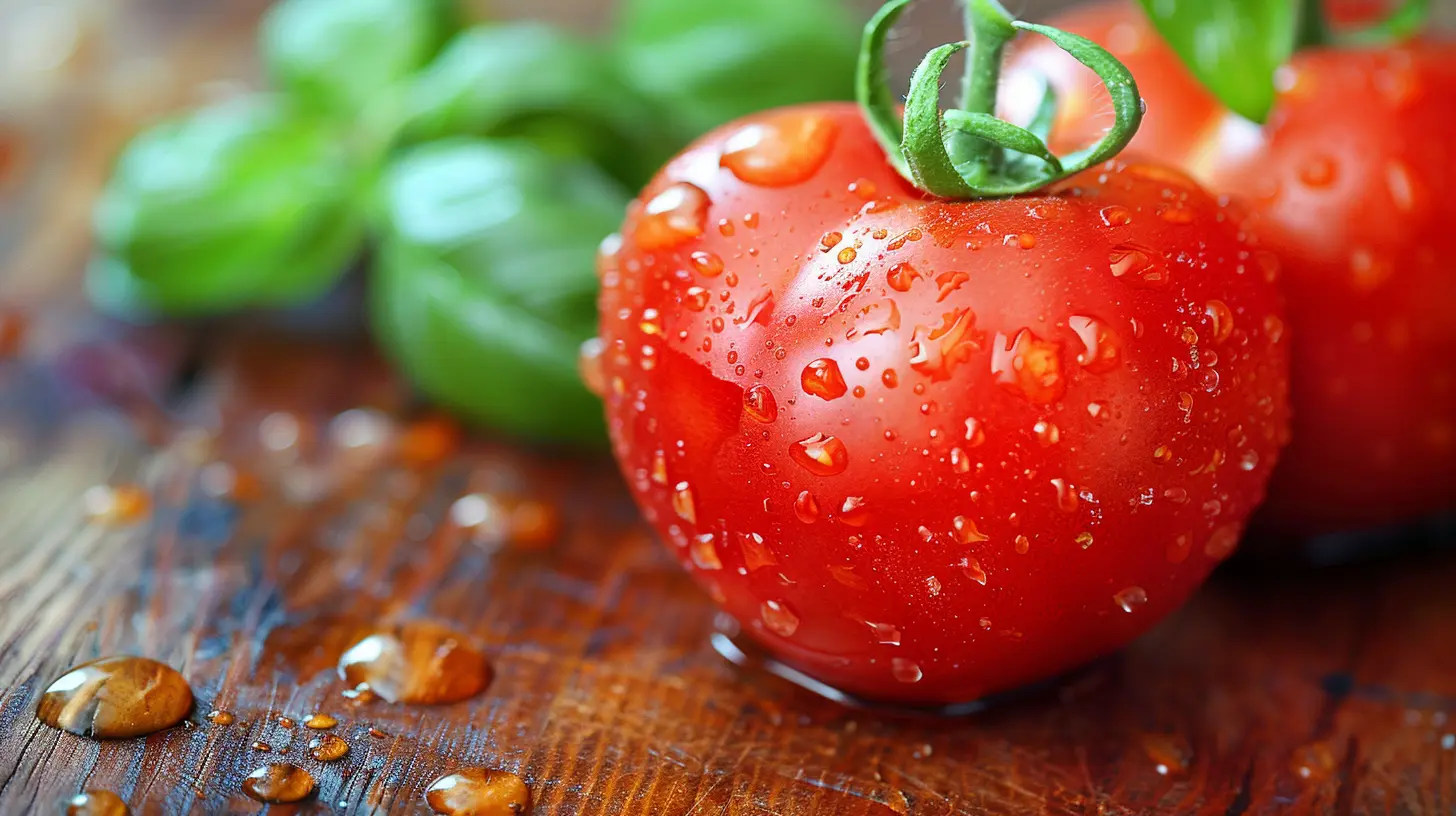Breaking Down the Mediterranean Diet: Why It’s Great for Your Heart
13 August 2025
Let’s be real for a second. When it comes to diets, most of us are bombarded daily with contradictory advice—cut carbs, eat more protein, try intermittent fasting, juice cleanse, keto this, paleo that. It’s a whirlwind. But one lifestyle that's stood the test of time and continues to win over nutritionists, doctors, and foodies alike is the Mediterranean diet. It’s not just another trend—it’s a way of life rooted in simplicity, delicious food, and, most notably, heart health.
So, if you’re looking to keep your ticker strong and steady while still enjoying your meals (because, let’s face it, nobody enjoys eating cardboard), then cozy up and let’s dive into what makes the Mediterranean diet a heart hero.
What Exactly Is the Mediterranean Diet?
Imagine sitting at a sun-drenched table on the coast of Greece or Italy. There’s a colorful plate in front of you—grilled fish, juicy tomatoes, feta, a drizzle of golden olive oil, fresh herbs, maybe a glass of red wine. That’s the Mediterranean diet in its purest form.But diving a bit deeper, the Mediterranean diet is inspired by the traditional dietary patterns of countries bordering the Mediterranean Sea. It’s less of a strict diet and more of a wholesome eating pattern, rich in:
- Fruits and vegetables
- Whole grains
- Legumes
- Nuts and seeds
- Healthy fats (especially olive oil)
- Moderate amounts of fish and poultry
- Occasional red wine
- Low intake of red meat and processed foods
That’s it. No counting calories, no crazy restrictions. Just whole, real food.
Why Is It So Good for Your Heart?
Here’s the big question: what’s the Mediterranean diet’s secret weapon when it comes to heart health?1. It’s All About Good Fats
First off, let's talk about fat. We’ve all been taught that fat is the villain, but that’s old news. The Mediterranean diet swaps out saturated and trans fats (like those in processed snacks and fried food) for healthy monounsaturated fats—mainly from olive oil and nuts.These fats help reduce bad LDL cholesterol and raise good HDL cholesterol. Think of this as cleaning out clogged pipes—your arteries stay clear, your blood flows better, and your heart doesn’t have to work as hard.
2. Packed With Antioxidants
Fruits and veggies in this diet aren’t just there for color. They’re loaded with antioxidants that fight oxidative stress, which has been linked to inflammation and chronic diseases—including heart disease. Berries, leafy greens, tomatoes, and even red wine (in moderation!) offer polyphenols and other compounds that support your cardiovascular system.3. High in Fiber
Whole grains, legumes, fruits, and veggies aren’t just filling—they’re also fiber powerhouses. Fiber aids in digestion, helps control blood sugar, and most importantly for your heart, lowers cholesterol. Every plate you eat in this diet has some kind of fiber-rich food, keeping your heart happy and your gut even happier.4. Less Processed, More Natural
The Mediterranean way shuns processed foods. That means less added sugar, no artificial trans fats, fewer additives, and less sodium. All of which can increase the risk of heart disease over time. Clean, simple food means your heart isn’t under constant attack from hidden ingredients you can’t pronounce.5. Reduces Inflammation
Chronic inflammation is like a slow burn in your body, and it plays a sneaky role in many diseases, especially heart disease. The Mediterranean diet, rich in anti-inflammatory foods like olive oil, fatty fish, leafy greens, and nuts, helps put out that fire naturally.
The Science Doesn’t Lie
Okay, personal stories and taste buds aside, what does the science say?Well, let's look at the famous PREDIMED study—a large clinical trial in Spain that followed over 7,000 people at high risk for heart disease. The study found that those who followed the Mediterranean diet (with either extra nuts or extra virgin olive oil) had a significantly lower risk of heart attack, stroke, or death from cardiovascular causes.
That's not a small claim. We're talking real, measurable heart protection—just from the way people ate.
Other studies have confirmed these findings time and again. Reduced risk of high blood pressure, lower cholesterol, better blood vessel function, and even weight management. It’s like giving your heart a shield and a sword for battle.
It’s Not Just What You Eat—It’s How You Eat
Here’s the part that often gets overlooked: Mediterranean life isn’t just about food. It’s about how you enjoy it.1. Slower Meals, More Connection
Meals in Mediterranean cultures are social events. People gather, laugh, share stories, and eat leisurely. That slower pace helps with digestion and prevents overeating because your body actually has time to register fullness.2. Mindful Eating
You won’t find many folks scarfing down a sandwich in their car or mindlessly munching in front of the TV. Mediterranean style is all about being present with your food. That means tasting, chewing, savoring—fully experiencing the meal.3. Movement Is a Lifestyle
Exercise isn’t a chore—it’s integrated into daily life. Whether it's walking to the market, gardening, or afternoon strolls with friends, staying active is a natural part of the day. This low-impact, consistent movement is ideal for heart health and overall longevity.Easy Ways to Start Eating the Mediterranean Way
You don’t have to move to Santorini to tap into the benefits. Here’s how you can bring a bit of the Mediterranean into your daily life without flipping your routine upside down:1. Cook with Olive Oil
Swap out butter or vegetable oil for extra virgin olive oil. Drizzle it on salads, sauté veggies, or even dip whole grain bread in it. It’s liquid gold for your heart.2. Eat More Plants
Aim to make veggies half your plate. Add beans to soups, throw leafy greens into your pasta, and snack on raw veggies and hummus.3. Choose Whole Grains
Skip the white bread and go for whole wheat, farro, quinoa, or brown rice. These grains have more fiber and nutrients, and they keep you full longer.4. Snack on Nuts
A small handful of almonds or walnuts is the perfect heart-healthy snack. They’re full of good fats, protein, and fiber.5. Go Fish
Try to eat fish like salmon, sardines, or tuna a couple times a week. They’re loaded with omega-3s, which are amazing for your heart.6. Limit Red Meat
You don’t have to go vegetarian, just cut back. Use red meat as a flavoring instead of the main event—think beef stir-fry with lots of veggies instead of a 12 oz steak.7. Drink Water (and Maybe a Little Wine)
Stay hydrated, and if you drink alcohol, stick to a small glass of red wine with dinner. But moderation is key.Mediterranean Diet Myths (Let’s Clear These Up)
Let’s bust a few common myths that might be floating around your head.Myth 1: It’s expensive.
Truth? It doesn’t have to be. Beans, rice, seasonal produce, canned tuna, and whole grains are affordable staples.
Myth 2: It’s all pasta and carbs.
Not quite. While whole grains are part of the diet, they’re balanced with protein, fats, and a ton of veggies.
Myth 3: It’s only for weight loss.
Nope! While many people do lose weight on it naturally, the goal here is long-term health—especially heart health.
Final Thoughts: It’s More Than Just a Diet
Here’s the deal—if you’re searching for a sustainable, enjoyable way to care for your heart, the Mediterranean diet checks all the boxes. It’s not about punishment, weird food combos, or cutting out entire food groups. It’s about nourishing your body, enjoying every bite, and adopting a lifestyle that feels like a long, warm hug.And hey, if it means you get to eat more olives, garlic, juicy tomatoes, and sip some red wine guilt-free—why not give it a go?
Remember, your heart beats over 100,000 times a day. It’s working hard for you—so let's return the favor.
all images in this post were generated using AI tools
Category:
Heart HealthAuthor:

Eileen Wood
Discussion
rate this article
1 comments
Reece McClellan
Who knew that eating like a Greek god could be heart-healthy? Bring on the olives, feta, and sunshine! Let’s toast with some olive oil for good measure!" 🫒❤️
September 6, 2025 at 2:40 AM

Eileen Wood
Absolutely! The Mediterranean diet is not only delicious but also packed with heart-healthy benefits. Cheers to olives, feta, and olive oil! 🥂❤️


